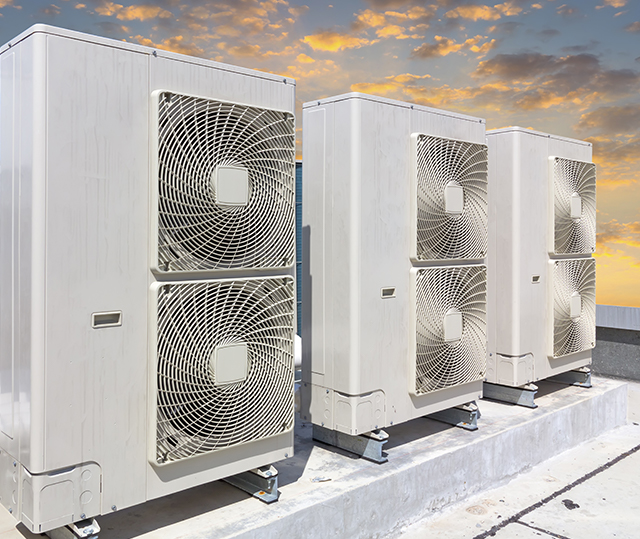

Heat Pumps
Heat pumps have become an increasingly important piece of the energy puzzle in recent years as they can significantly reduce the cost of heating and cooling a building.
In this Section
Heat Pumps
Heat pumps have become an increasingly important piece of the energy puzzle in recent years as they can significantly reduce the cost of heating and cooling a building.
How They Work
Heat pumps are electrical devices that extract heat from one place and transfer it to another by circulating a substance called a refrigerant. A heat pump can provide year-round climate control and be a great addition to improve the energy efficiency of your building.
In general, it's not recommended to use a heat pump to meet all of your heating requirements. In Canada, our cold climate means that we require more energy to provide heating than cooling. If the heat pump is sized to meet 100% of your heating needs, it will be too large to meet your cooling needs and will only work intermittently. As a result, heat pumps are usually installed with supplementary heating, such as an oil furnace or electric-resistance heaters. However, with a heat pump, your heating or air conditioning system doesn't need to work nearly as hard.
Types of Heat Pumps
There are two main types of heat pumps:
- Air-source heat pumps provide heat to a home or building by extracting heat from the outside air and transferring it inside during the heating season (winter). They also provide cooling by removing heat from the inside air and transferring it outside during the summer.
- Ground-source heat pumps extract heat from the ground or groundwater and transfer the heat inside. They also provide cooling during the summer by transferring heat from inside to the ground. These types of systems have two parts: a circuit of underground piping outside the house and a heat pump unit inside the house. The outdoor piping system can be either an open system or a closed loop. An open system absorbs heat from an underground body of water and a closed system circulates a refrigerant to collect heat from the soil.
On average, ground-source heat pumps provide more savings than air-source heat pumps, but the installation costs are much higher. As a result, the payback period for a ground-source heat pump can be much longer, meaning it will take longer to recover your initial investment.
What have others done?

Icewater Seafoods of Arnold's Cove has implemented a project to capture waste heat from its refrigeration system to heat the plant and improve fish thawing processes. Through a heat pump system, waste heat that was being vented into the atmosphere is reused to heat the plant and make processing more efficient. Each year, this system will reduce fuel by around 160,000 to 180,000 litres and greenhouse gases by about 500 tonnes per year. Government estimates that the potential energy cost saving realized as a result of these types of actions are in the order of $175,000 - $185,000 per year.

